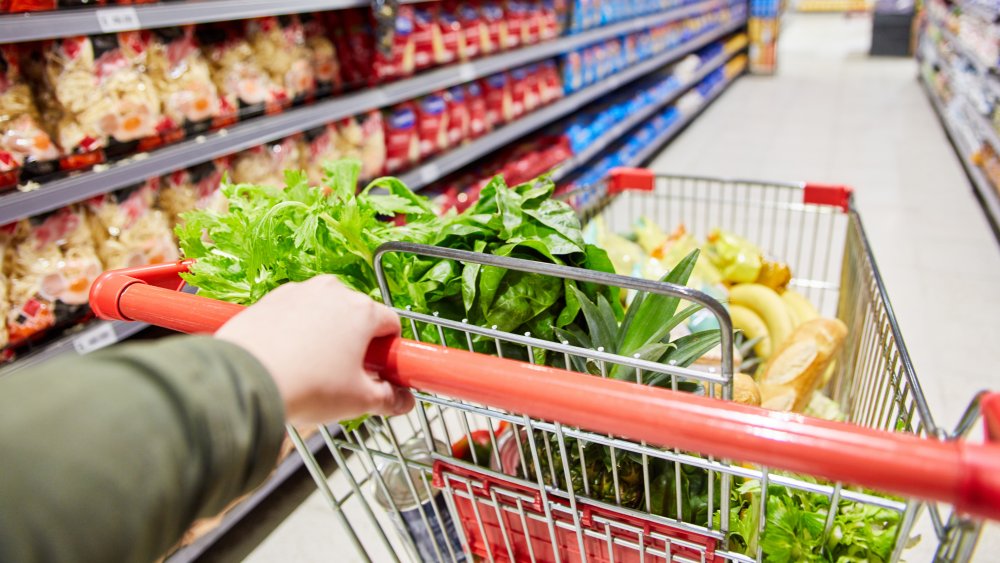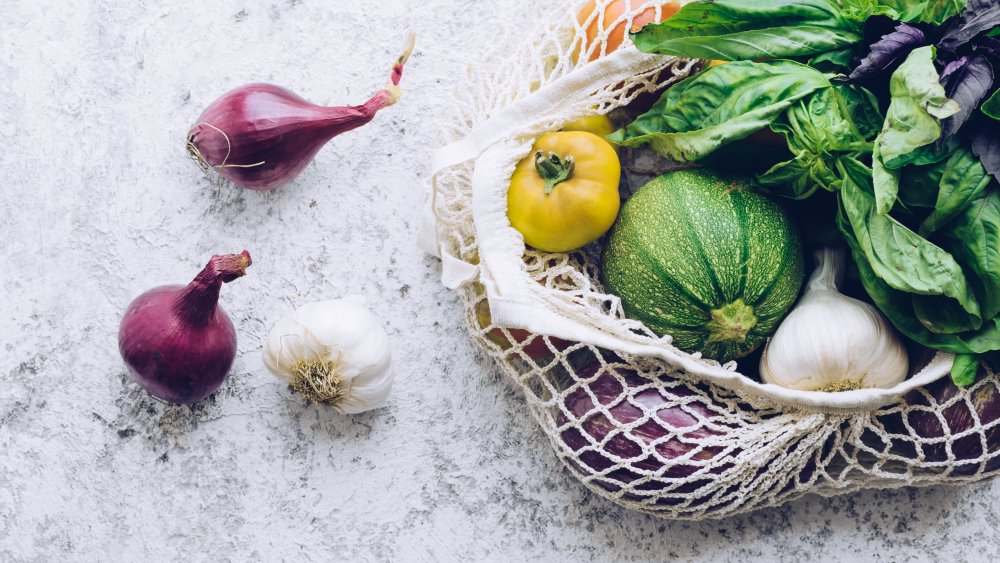The Truth About Using Plastic Produce Bags
If you, like most of us, are aware of what plastic bags are doing to the environment, you're probably bringing your own recyclable totes to the supermarket to cut down on the use of both paper and plastic bags. The other thing that you might be considering is doing away with single-use produce bags, which are still widely available. And while we'd hate to be the statistical American family which takes home nearly 1,500 plastic shopping bags a year (via NDRC), we'd like to invite you to think twice before taking a hard pass at produce bags which are still available for free for our fruits and vegetables.
Unfortunately for us, the supermarket, which is the source of most of our food, is not the cleanest place in the neighborhood. A survey by Reuse this Bag, which makes recyclable shopping bags, found that a traditional grocery store cart plays host to nearly 361 times more bacteria than a bathroom doorknob. So when you take produce and transfer that into your cart, then onto the conveyor belt, the produce is not just coming in contact with that colony, it is also picking up pieces from the bacterial footprint of every person and every thing that came before it (via Taste of Home).
Single-use produce bags help protect you
But wait, there's more. Reuse this Bag also says a traditional grocery store can produce as much as 1,940 colony-forming units (CFU) per square inch (746 times more than a car's steering wheel), while the produce section at an upscale grocery store has 3.3 million CFU per inch (more than 11 times what you might find in your pet's food bowl). If you go budget for produce, you're looking at a 5.6 million CFU at the produce section. And supermarkets know the score, which is why the single-use produce bags haven't disappeared as easily as larger shopping bags have. "The produce bags in our stores provide guests a convenient and effective means of protecting fresh produce from being introduced to bacteria that may be present in a shopping cart, on the checkout register conveyor or within a reusable shopping bag," Vic Savanello, vice president of produce for The Fresh Market tells Cooking Light.
Supermarkets want you to know that using these thin bags not only protect you, they are also a courtesy to the next customer, because your bag will keep carts and conveyor belts clean in the event that your produce (or meats) drips or breaks either in the cart or at the register. And if you're really single-use bag averse, bring your own so you can protect your fruits and vegetables. And when you get home, wash the produce — as well as your hands — properly in order to keep your food germ free.

